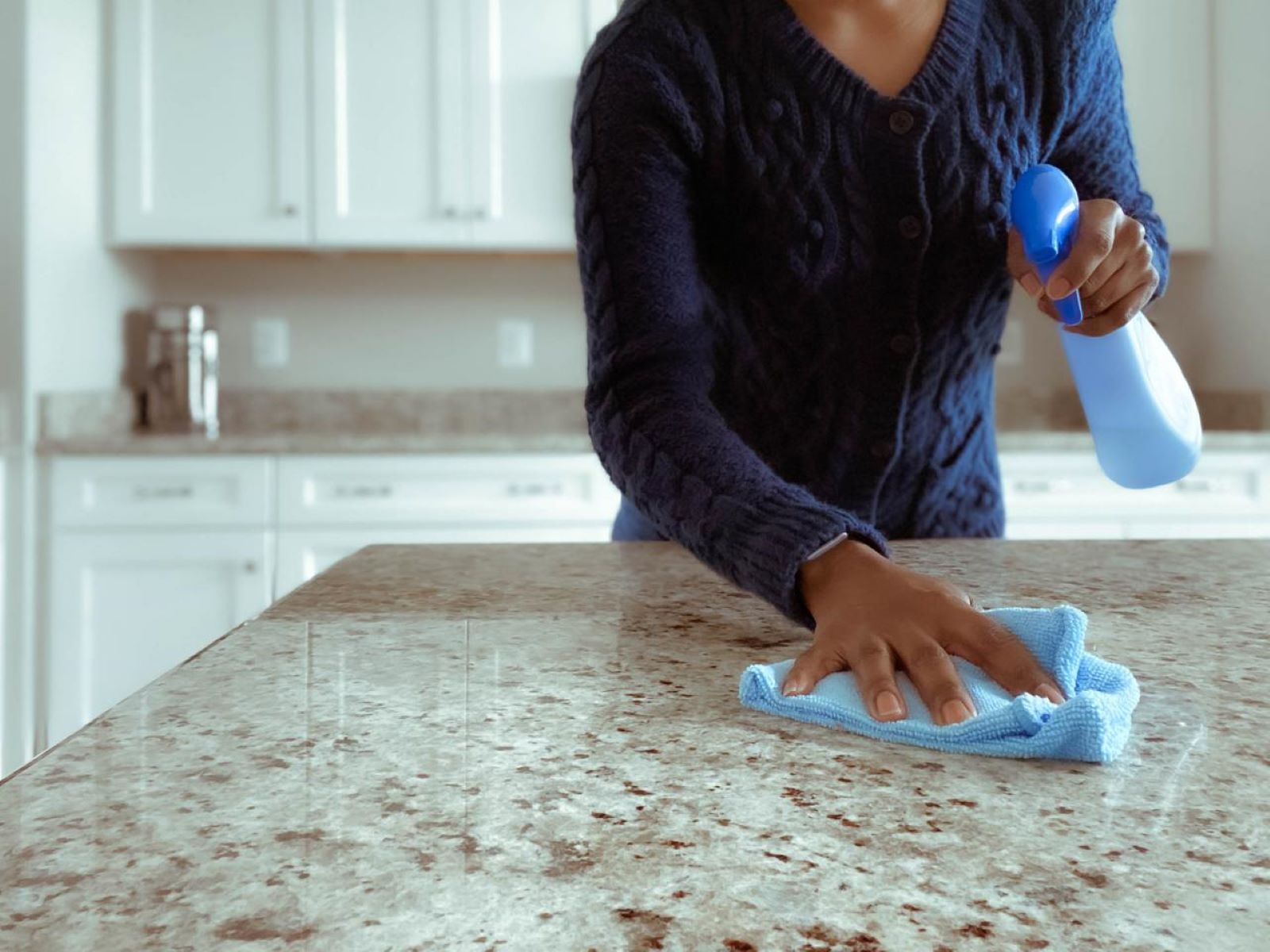

Articles
How To Disinfect Kitchen Countertops
Modified: December 7, 2023
Discover effective ways to disinfect your kitchen countertops in this informative article. Keep your kitchen clean and germ-free with these easy tips.
(Many of the links in this article redirect to a specific reviewed product. Your purchase of these products through affiliate links helps to generate commission for Storables.com, at no extra cost. Learn more)
Introduction
Keeping a clean and hygienic kitchen is essential for maintaining good health. One area of the kitchen that often requires extra attention is the countertops. Kitchen countertops are constantly exposed to food particles, spills, and other contaminants, making them a breeding ground for bacteria and other harmful microorganisms. That’s why regular disinfection of kitchen countertops is crucial.
Disinfecting kitchen countertops not only ensures that they are free of germs and bacteria but also helps to prevent cross-contamination and the spread of foodborne illnesses. By following proper disinfection techniques, you can create a safe and sanitary environment for food preparation.
In this article, we will discuss the importance of disinfecting kitchen countertops and provide you with a step-by-step guide on how to effectively disinfect them. We will also explore alternative natural methods for disinfection and highlight some important precautions and safety measures to keep in mind.
So, let’s dive in and learn how to keep your kitchen countertops clean, safe, and free from harmful pathogens.
Key Takeaways:
- Regularly disinfecting kitchen countertops is crucial for preventing foodborne illnesses, protecting vulnerable individuals, and maintaining a clean and inviting kitchen space.
- When choosing a disinfectant, prioritize effectiveness, safety, and compatibility with your countertops. Follow proper application techniques and consider natural alternatives for supplementary disinfection.
Read more: How Do You Disinfect Granite Countertops
Importance of Disinfecting Kitchen Countertops
Keeping your kitchen countertops clean and sanitized is essential for several reasons. Here are some key reasons why disinfecting kitchen countertops is important:
- Prevention of Illness: Kitchen countertops can harbor harmful bacteria, such as E. coli, salmonella, and listeria, which can cause foodborne illnesses. Regular disinfection helps to kill these pathogens and reduce the risk of contamination.
- Food Safety: Cross-contamination is a common issue in the kitchen. By disinfecting your countertops, you minimize the chance of transferring bacteria from raw meat, poultry, or vegetables to other surfaces, like cutting boards and utensils, ensuring the safety of your food.
- Protection for Vulnerable Populations: Disinfecting kitchen countertops is particularly important when you have infants, young children, elderly individuals, or immunocompromised family members. These individuals are more susceptible to infections, so it’s crucial to maintain a clean and sanitized kitchen environment.
- Elimination of Odors: Over time, kitchen countertops can develop unpleasant odors due to food debris and bacterial growth. Regular disinfection helps to eliminate these odors, leaving your kitchen smelling fresh.
In addition to these reasons, keeping your kitchen countertops clean and disinfected also enhances the overall appearance of your kitchen. A clean and well-maintained countertop adds to the aesthetics of your space, giving it a more inviting and appealing look.
Now that we understand the importance of disinfecting kitchen countertops, let’s move on to the next section and explore how to choose the right disinfectant for the job.
Choosing the Right Disinfectant
When it comes to disinfecting kitchen countertops, choosing the right disinfectant is essential. Not all disinfectants are created equal, and different surfaces may require different products depending on their material.
Here are some factors to consider when selecting a disinfectant for your kitchen countertops:
- Effectiveness: Look for a disinfectant that is proven to be effective against a wide range of bacteria, viruses, and fungi. Check the label to ensure it is registered with appropriate regulatory bodies and has demonstrated efficacy against common kitchen pathogens.
- Safety: Consider the safety of the product, especially if you have pets or young children in the house. Some disinfectants may contain harsh chemicals that can be harmful if ingested or inhaled. Look for non-toxic options or choose products labeled as safe for food contact surfaces.
- Compatibility: Check if the disinfectant is suitable for the material of your countertops. Certain surfaces, such as marble or granite, may require specific disinfectants to avoid damaging the finish. Refer to the manufacturer’s guidelines or consult with a professional if you are unsure.
- Convenience: Consider the ease of use and convenience of the disinfectant. Look for products that are readily available, easy to apply, and have clear instructions for proper usage. Convenience plays a significant role in ensuring that you will consistently disinfect your countertops.
- Environmental Impact: If sustainability is a priority for you, look for eco-friendly disinfectants. Many manufacturers now offer environmentally friendly options that are free from harsh chemicals and harmful ingredients.
It’s important to note that disinfectants should be used as directed on the label. Follow the instructions carefully for proper dilution ratios, contact time, and any safety precautions.
By taking these factors into account, you can choose a disinfectant that is effective, safe, compatible with your countertops, and aligns with your personal preferences and values.
Next, we will proceed to the step-by-step guide on how to properly disinfect your kitchen countertops.
Step-by-Step Guide to Disinfecting Kitchen Countertops
Proper disinfection techniques are crucial for effectively killing germs and bacteria on your kitchen countertops. Follow these step-by-step instructions to ensure a thorough and successful disinfection process:
- Gather your supplies: Start by collecting all the necessary supplies, including a disinfectant of your choice, clean cloths or paper towels, and gloves if desired.
- Clear the countertops: Remove any items or clutter from your countertops, including utensils, appliances, and food items. This step allows for better access and thorough disinfection of the entire surface.
- Pre-clean the countertops: Before applying the disinfectant, give your countertops a pre-clean to remove any visible dirt, crumbs, or spills. Use warm, soapy water and a sponge or cloth. Rinse and dry the surface thoroughly.
- Apply the disinfectant: Follow the instructions on the disinfectant label for proper application. Use a clean cloth or paper towel and generously apply the disinfectant to the countertop surface.
- Allow the contact time: Most disinfectants require a certain amount of contact time to effectively kill germs. Consult the product label to determine the recommended contact time for your chosen disinfectant. Avoid using the countertop during this period.
- Wipe and rinse: After the contact time, use a clean cloth or paper towel to wipe the countertop surface and remove the disinfectant. For safety purposes, rinse the countertop with water to ensure no residue remains. Dry the surface thoroughly with a clean, dry cloth.
- Replace items: Once the countertops are completely dry, you can return the items and appliances back to their designated spots.
Remember, it’s important to follow the specific instructions provided by the disinfectant manufacturer. Different products may have slight variations in application and contact time.
By following this step-by-step guide, you can effectively disinfect your kitchen countertops and create a clean and sanitary cooking environment.
Next, we will explore some alternate natural methods for disinfecting kitchen countertops.
After cleaning your kitchen countertops with soap and water, use a solution of 1 part bleach to 9 parts water to disinfect. Let it sit for 5 minutes, then rinse thoroughly.
Alternate Natural Methods for Disinfection
If you prefer to use natural alternatives or are looking for additional disinfection methods, there are a few options available. While natural methods may not be as powerful as commercial disinfectants, they can still provide effective results. Here are some alternate natural methods for disinfecting kitchen countertops:
- Vinegar: Vinegar is a natural disinfectant due to its acidic properties. To use vinegar for disinfection, mix equal parts of white vinegar and water in a spray bottle. Spray the solution onto the countertops, let it sit for a few minutes, and then wipe it down with a clean cloth.
- Hydrogen Peroxide: Hydrogen peroxide is another natural disinfectant that can kill bacteria and viruses. It is particularly useful for cutting boards and other non-porous surfaces. Simply pour hydrogen peroxide onto a clean cloth or sponge and wipe down the countertops. Allow it to sit for a few minutes before rinsing with water.
- Lemon Juice: Lemon juice has natural antibacterial properties and can help to neutralize odors. Squeeze fresh lemon juice onto the countertop surface and let it sit for a few minutes. Scrub the surface gently with a sponge or cloth, then rinse with water.
- Essential Oils: Some essential oils, such as tea tree oil, have antimicrobial properties that can be used for disinfection. Mix a few drops of tea tree oil with water in a spray bottle and spray it onto the countertops. Let it sit for a few minutes, then wipe it clean with a cloth.
- Baking Soda: Baking soda is a natural cleaning agent that can help remove stains and odors. Create a paste by mixing baking soda with water, then apply the paste to the countertops. Let it sit for a while, then scrub the surface gently with a sponge or cloth. Rinse thoroughly with water afterwards.
While these natural methods can be effective, it’s important to note that they may not provide the same level of disinfection as commercial disinfectants. Use these alternatives as supplementary methods or in situations where commercial products are not readily available.
Regardless of the method you choose, always follow proper safety precautions and ensure proper ventilation when using any disinfectant or cleaning product.
Now that you have learned about alternate natural methods, let’s move on to the next section and discuss some important precautions and safety measures to consider.
Precautions and Safety Measures
When disinfecting kitchen countertops, it’s important to prioritize your safety and take appropriate precautions. Here are some essential precautions and safety measures to keep in mind:
- Read and follow instructions: Always read and follow the instructions provided by the disinfectant manufacturer. Use the products as directed, including proper dilution ratios and contact times.
- Protective gear: Consider wearing gloves to protect your hands from potentially harsh chemicals. Additionally, ensure that the area is well-ventilated to prevent inhaling fumes. Open windows or use fans to improve air circulation.
- Avoid mixing chemicals: Never mix different disinfectants or cleaning products together. Mixing chemicals can create toxic fumes or reactions that can be harmful to your health.
- Test on a small area: Before applying a new disinfectant or method to your entire countertop surface, test it on a small, inconspicuous area. This will help ensure that it does not cause any damage or discoloration.
- Keep surfaces wet: When applying a disinfectant, ensure that the countertop surface remains wet for the required contact time. This will allow the disinfectant to effectively kill the germs it comes into contact with.
- Food safety: After disinfecting the countertops, make sure to wash any utensils, cutting boards, or dishes that may have come into contact with the disinfectant. This is especially important if you are using commercial disinfectants that may leave residue behind.
- Store disinfectants safely: Keep all disinfectants out of reach of children and pets. Store them in a secure location, following any specific storage instructions provided on the product labels.
- Regular cleaning: Disinfection should be part of your regular cleaning routine. Before disinfecting, ensure that your countertops are clean and free from debris. Regularly wipe down surfaces and remove any spills or food particles to prevent the growth of bacteria.
By following these precautions and safety measures, you can ensure safe and effective disinfection of your kitchen countertops.
Now, let’s conclude our discussion.
Conclusion
Maintaining clean and disinfected kitchen countertops is an important step in ensuring a safe and healthy kitchen environment. By regularly disinfecting your countertops, you can effectively kill germs, prevent cross-contamination, and protect yourself and your family from foodborne illnesses.
In this article, we discussed the importance of disinfecting kitchen countertops and provided you with a step-by-step guide to properly disinfect them. We also explored alternate natural methods for disinfection, offering you additional options. Additionally, we highlighted precautions and safety measures to keep in mind when disinfecting your countertops.
Remember to choose the right disinfectant based on its effectiveness, safety, compatibility, and convenience. Follow the manufacturer’s instructions, wear protective gear if necessary, and test any new disinfectants on a small area before applying them to the entire surface.
Incorporating regular disinfection of your kitchen countertops into your cleaning routine will help create a clean and sanitary space for food preparation. It is also crucial to maintain cleanliness throughout the kitchen by regularly wiping down surfaces and practicing proper food handling and storage techniques.
By taking these measures, you can ensure a hygienic and safe kitchen environment for you and your loved ones. So, make disinfecting your kitchen countertops a priority and enjoy a healthier, cleaner kitchen.
Frequently Asked Questions about How To Disinfect Kitchen Countertops
Was this page helpful?
At Storables.com, we guarantee accurate and reliable information. Our content, validated by Expert Board Contributors, is crafted following stringent Editorial Policies. We're committed to providing you with well-researched, expert-backed insights for all your informational needs.
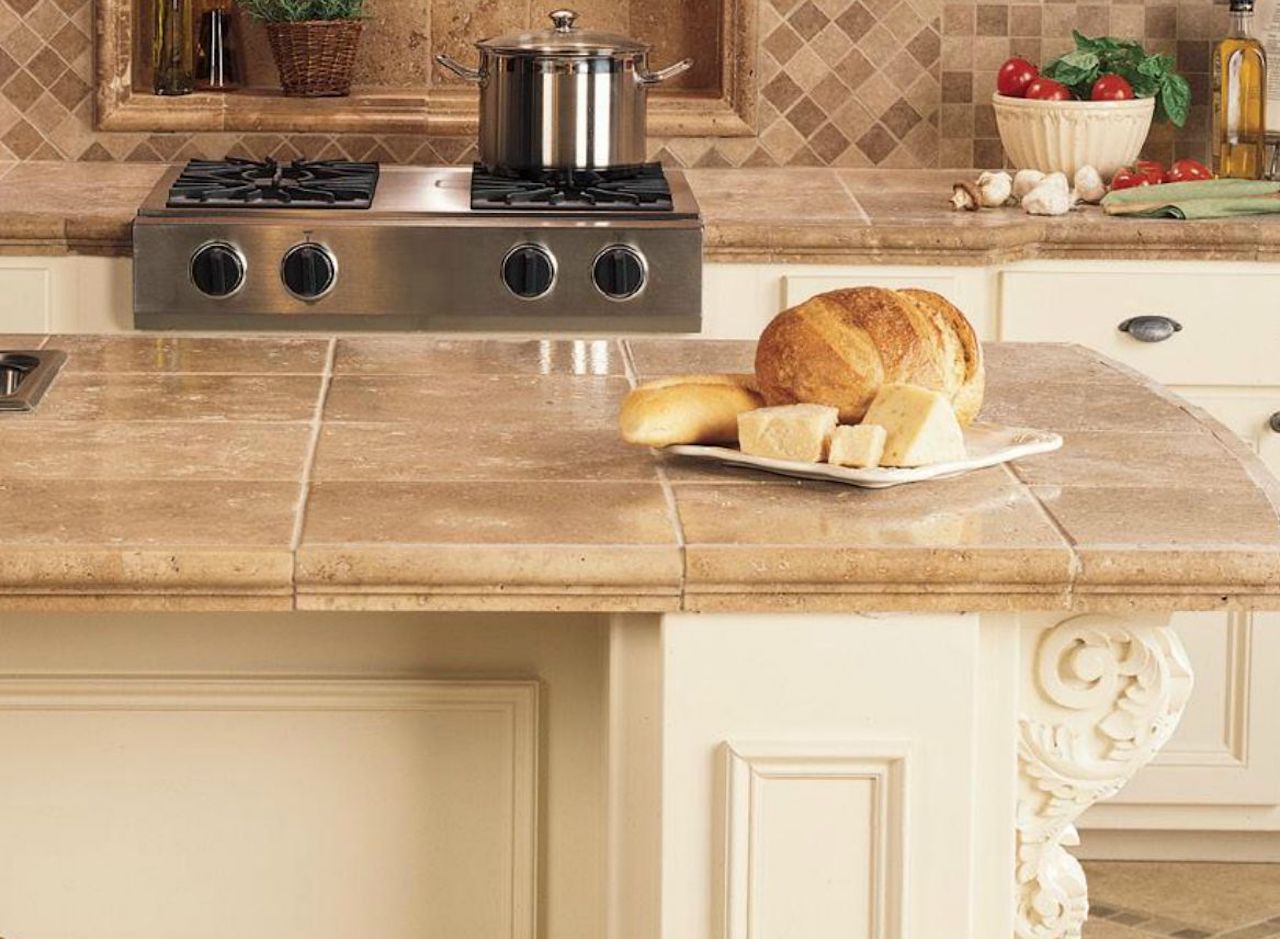
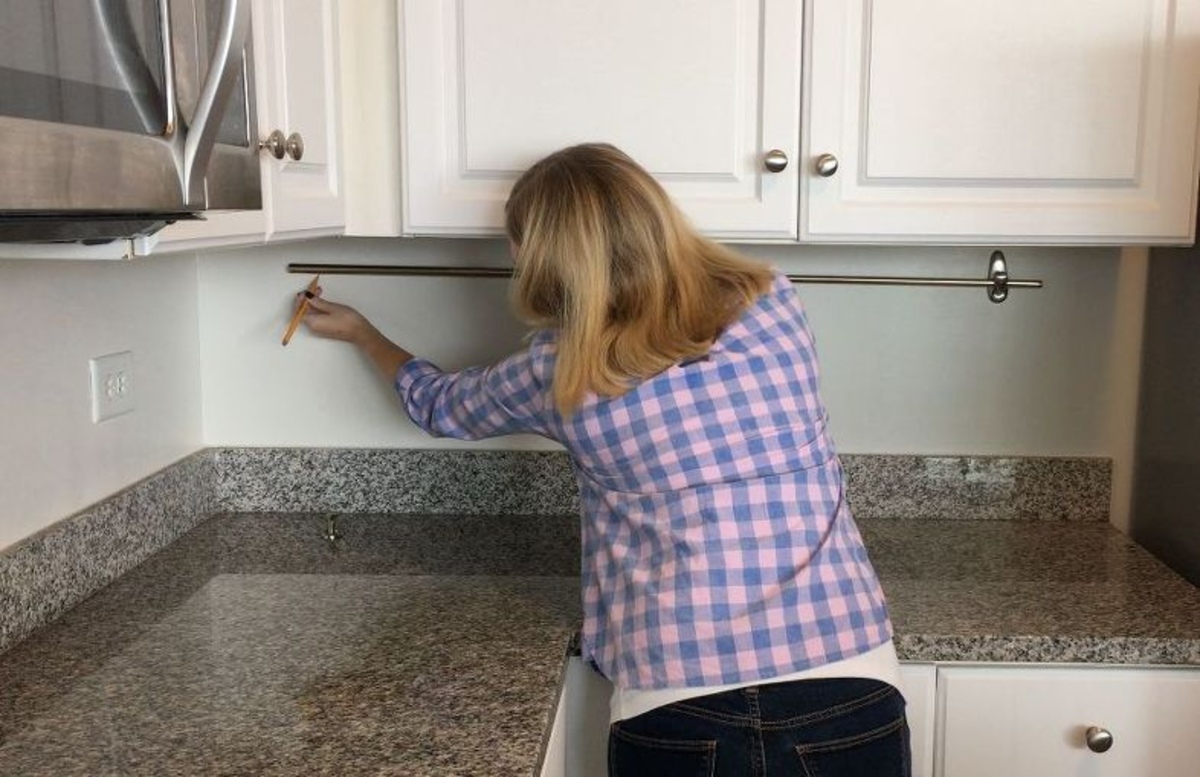
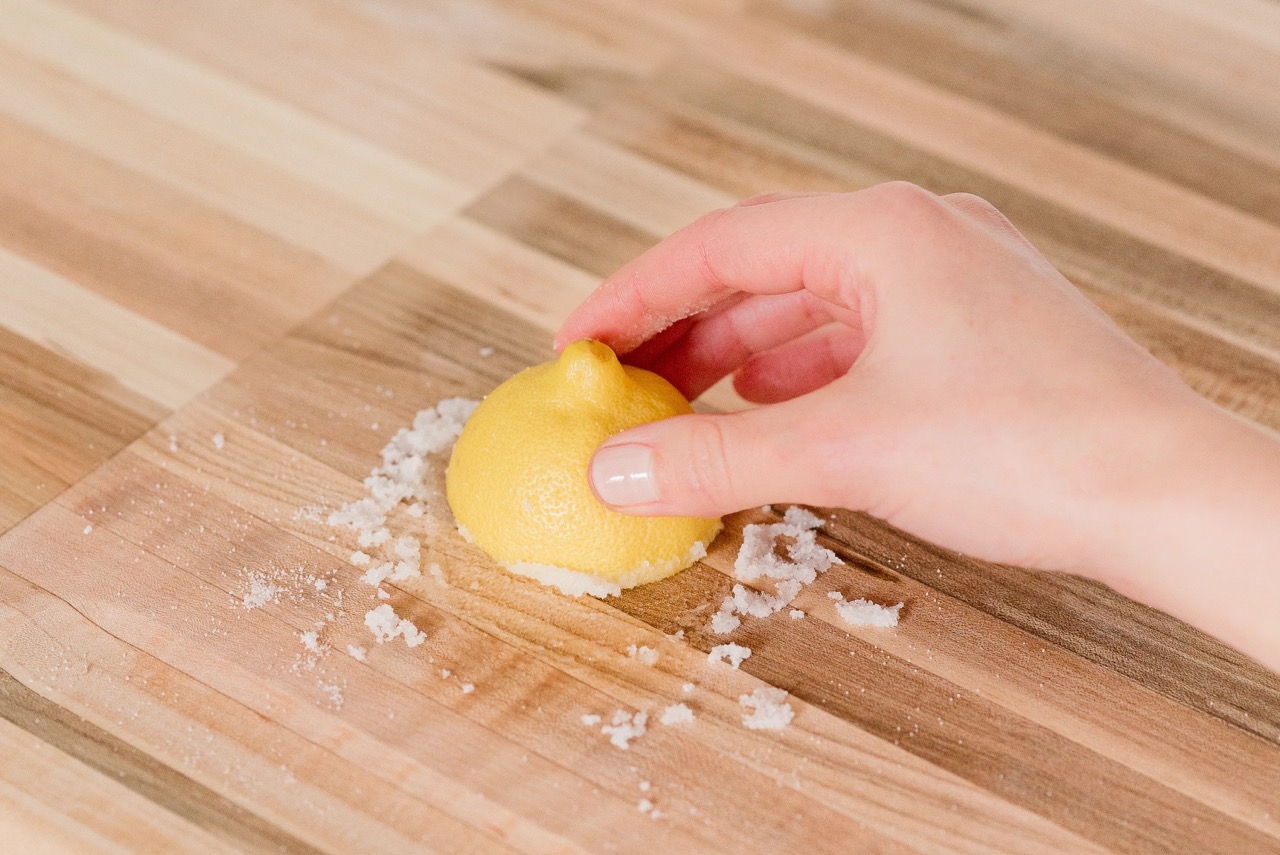
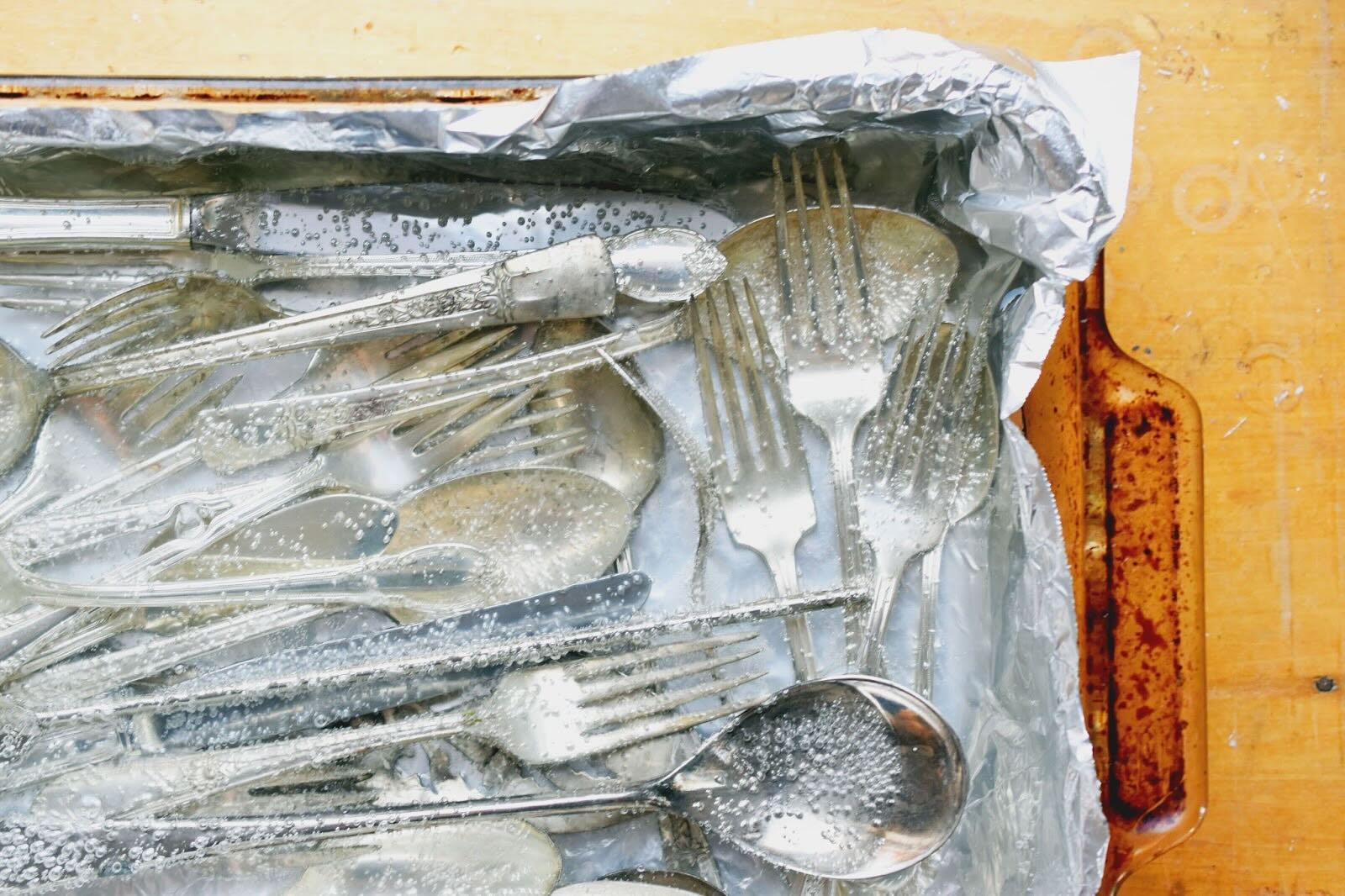
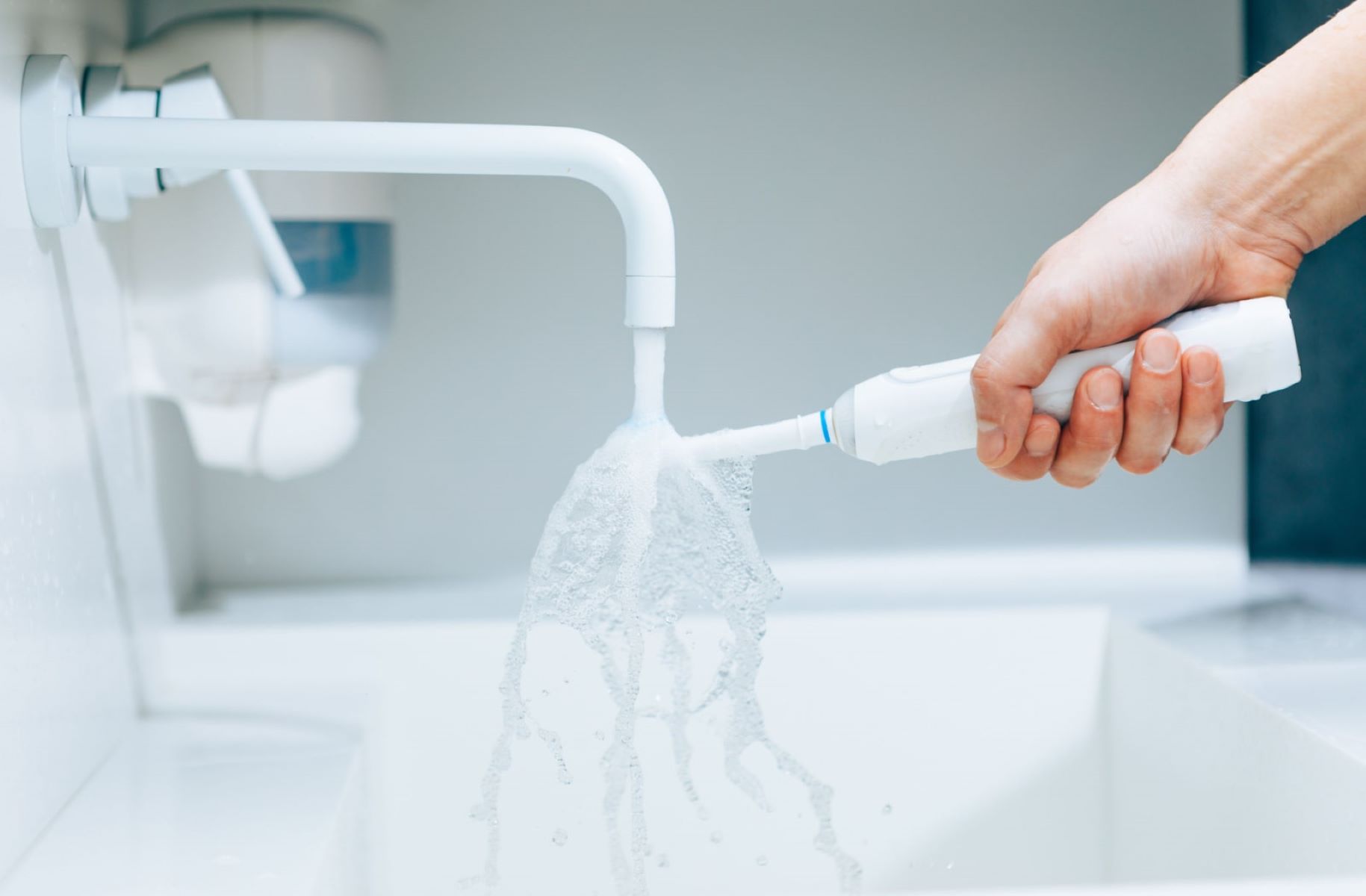
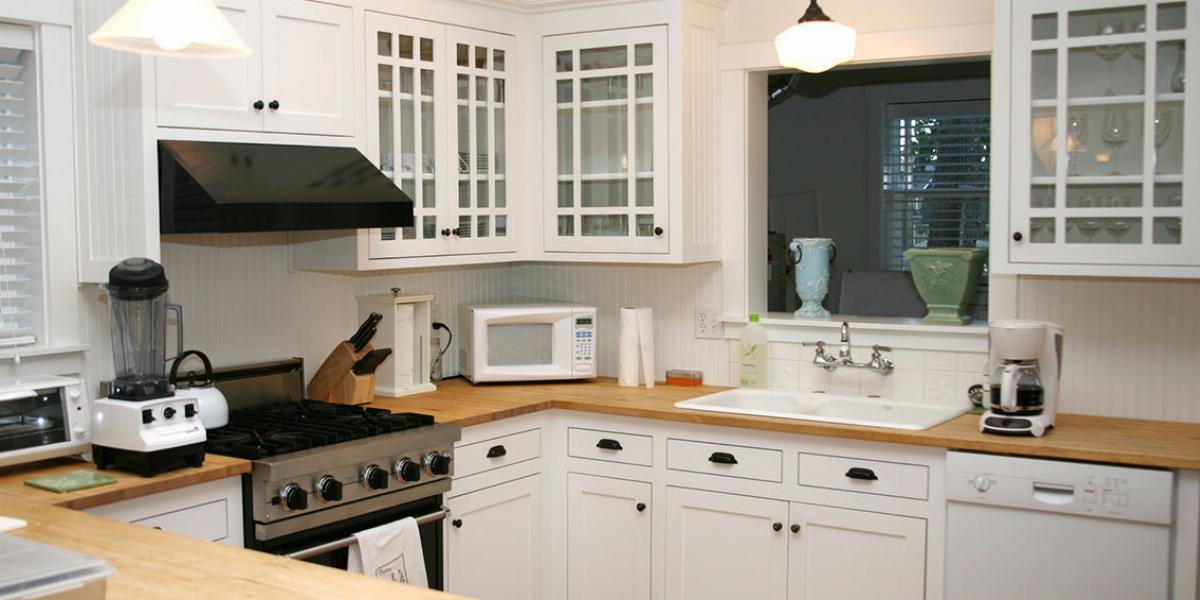
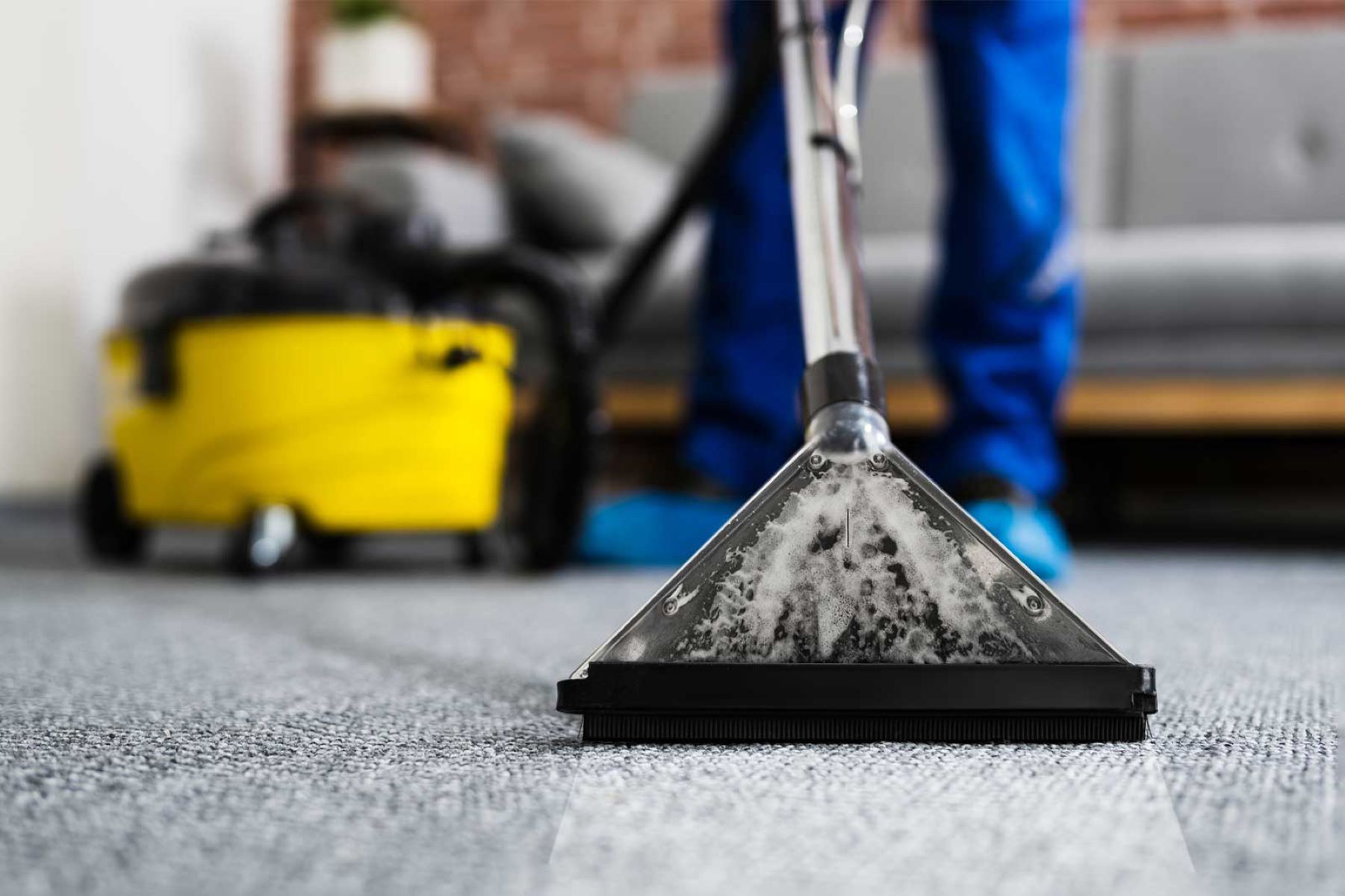
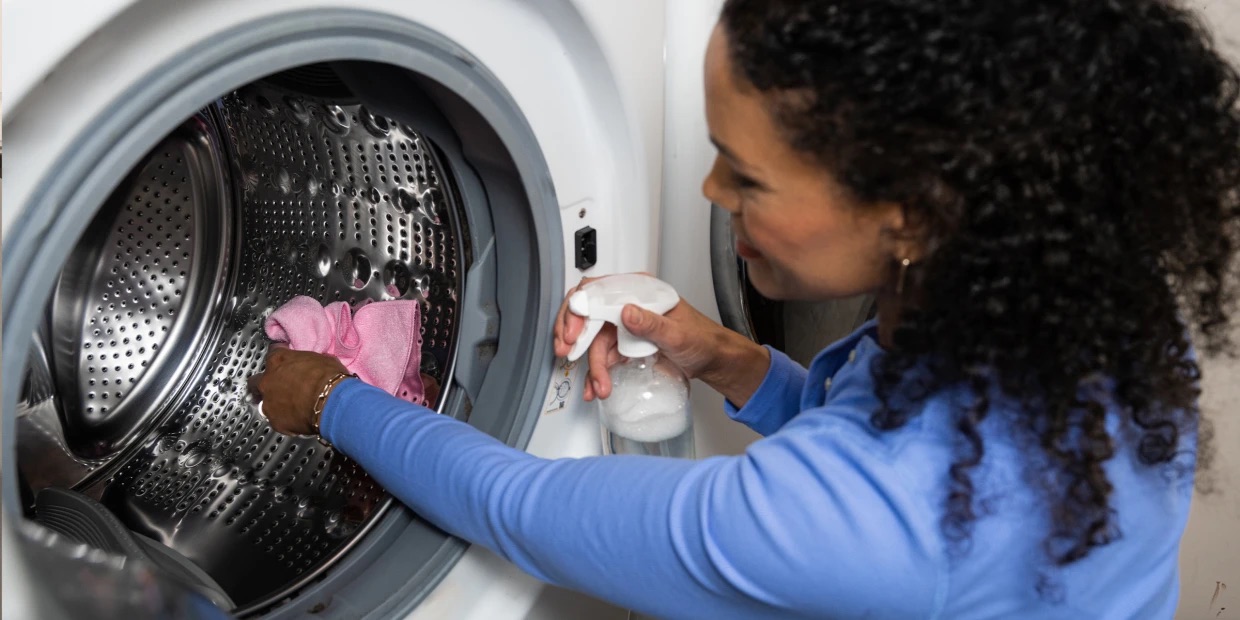

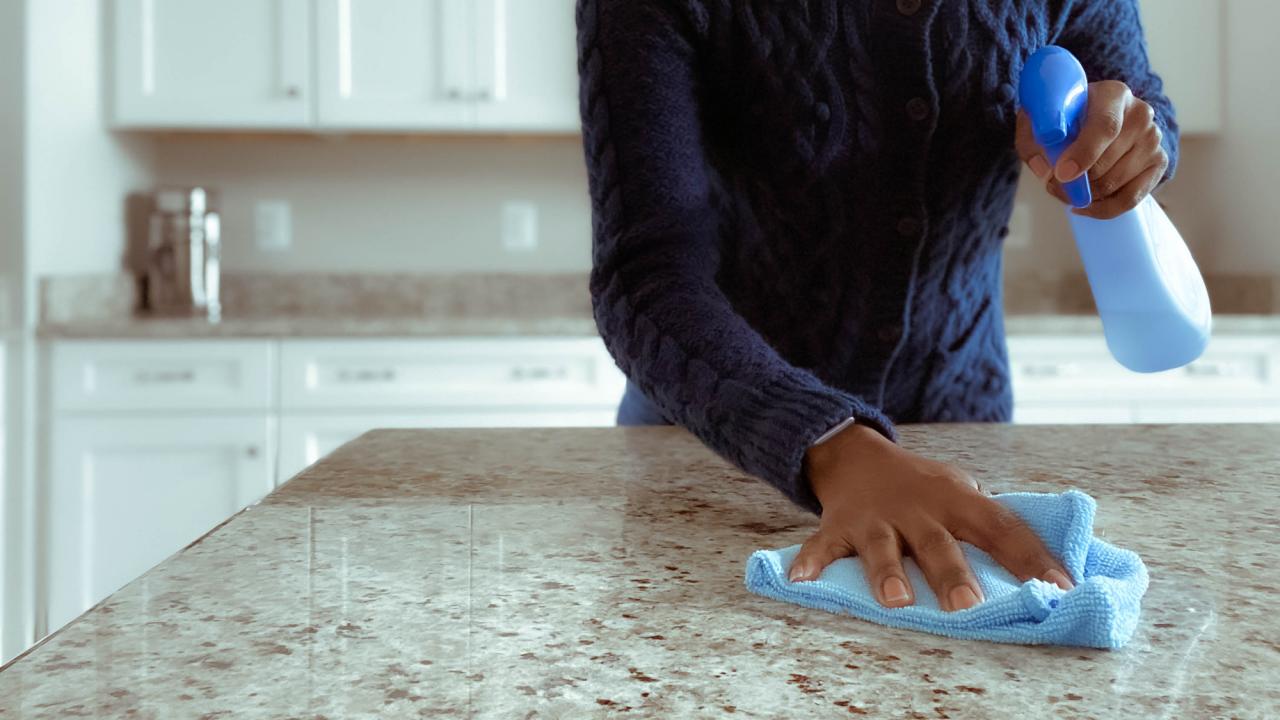
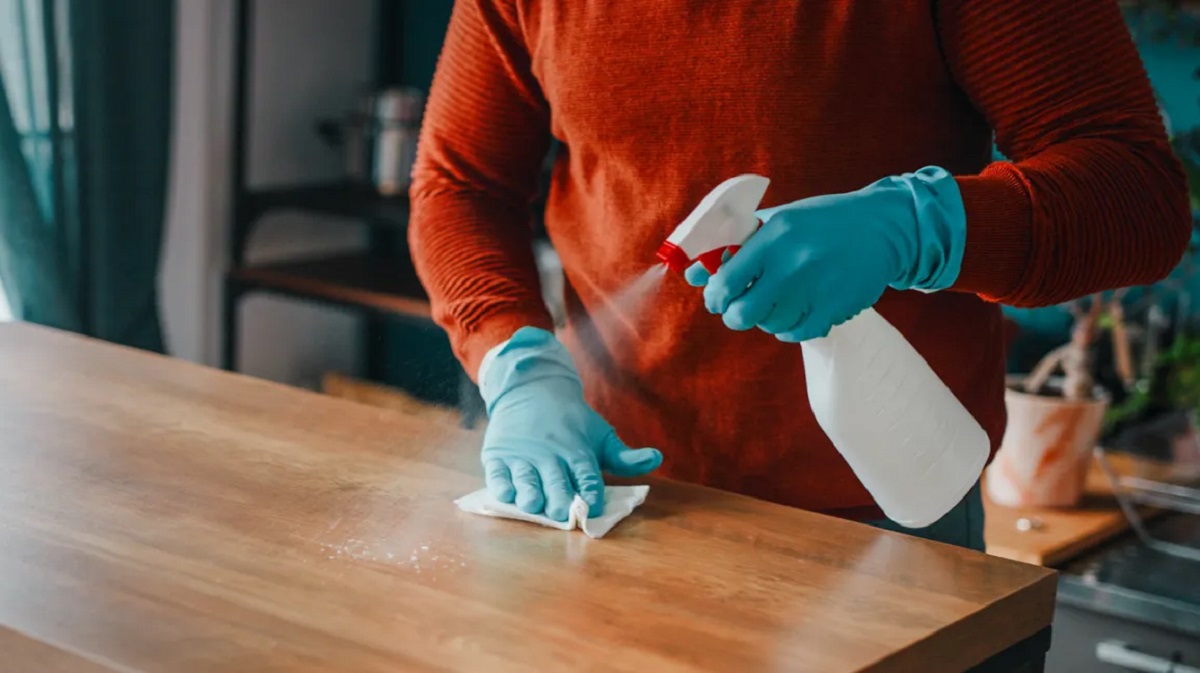

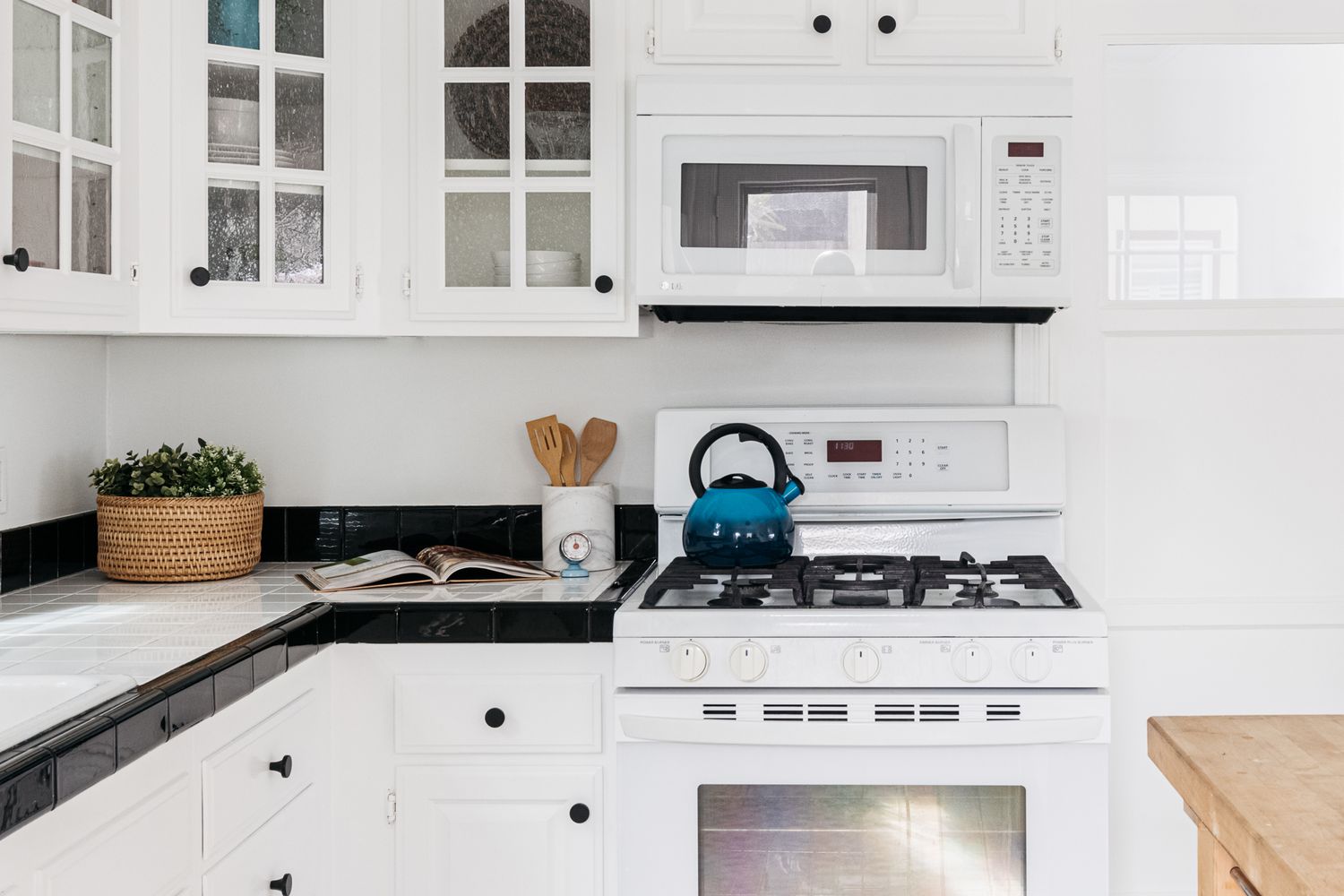
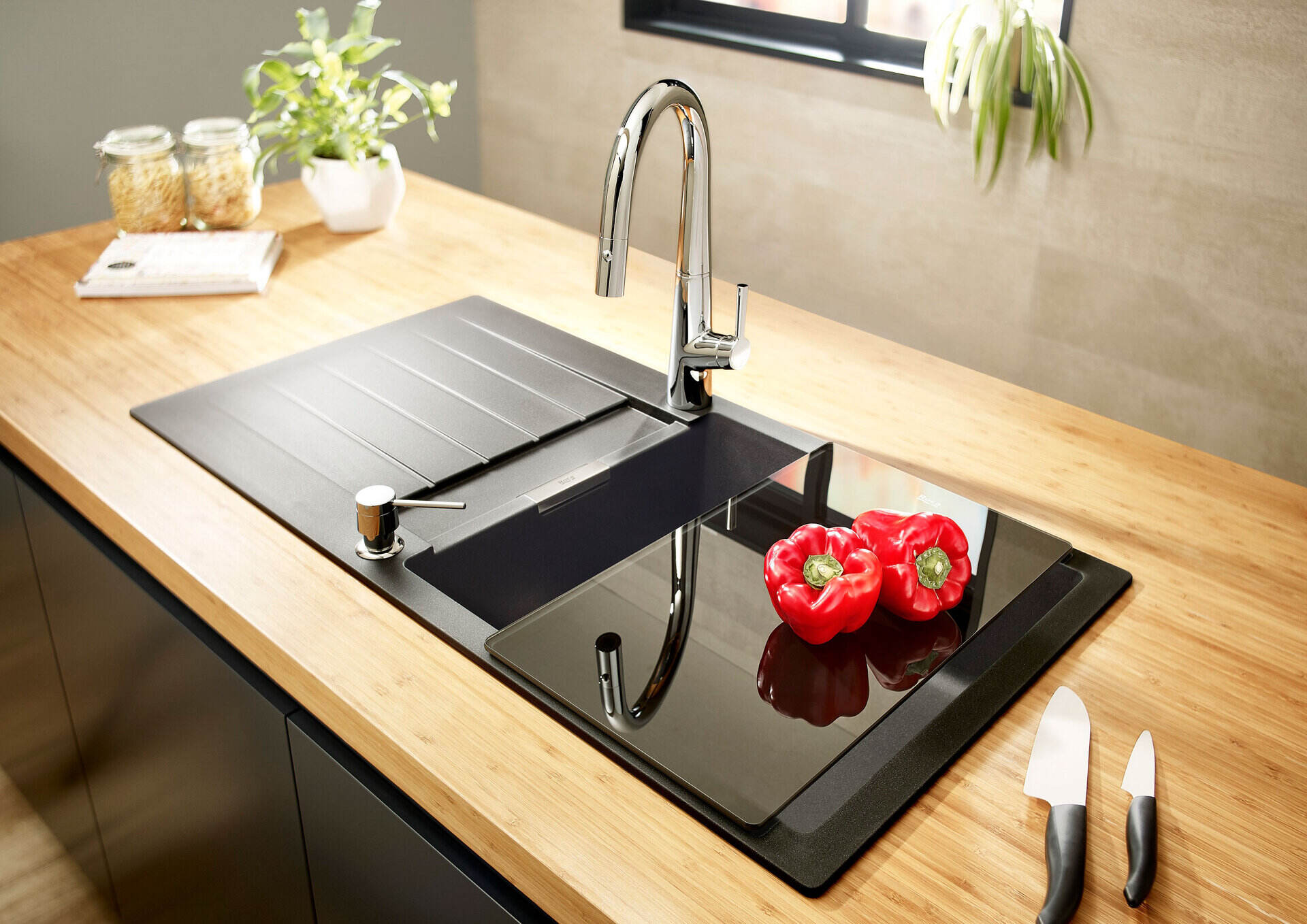

0 thoughts on “How To Disinfect Kitchen Countertops”